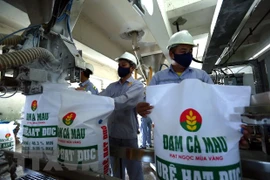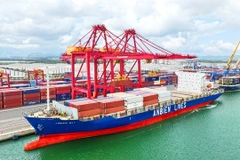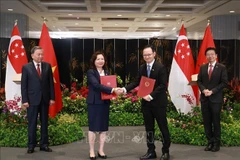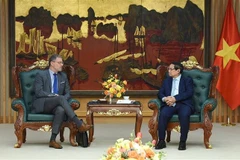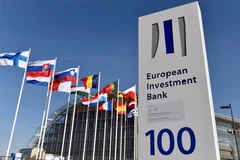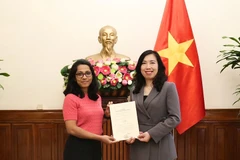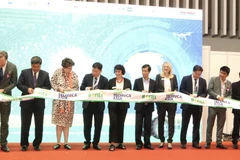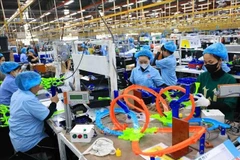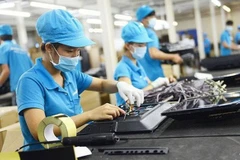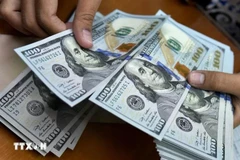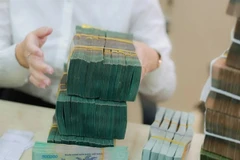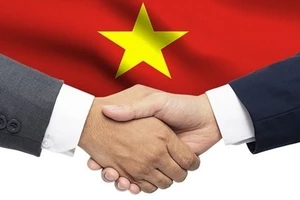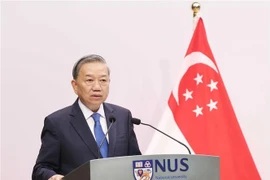Hanoi (VNA) - Tax Law No 71/2014/QH13, which treats fertiliser asa VAT-free item, has become a double-edged sword as after five years of implementationit has not reduced domestic fertiliser prices but instead hindered production andinvestment in the sector.
With the aim of cutting fertiliser production costs to help farmers posthigher profits, the law, which took effect in January 2015, stipulates that fertiliserand machinery and equipment in service of agricultural production are not subjectto value added tax (VAT). This applies to all relevant import, manufacturing, andtrade processes. However, according to the Fertiliser Association of Vietnam, since2015, the cost of urea, DAP, NPK, and organic fertilisers have increased by 5-8percent.
The elimination of VAT on fertiliser also means that fertilisercompanies can no longer deduct the VAT they paid on inputs and instead increasetheir prices to earn the same revenue.
Meanwhile, imported fertiliser is sold at prices lower than domestically-madeequivalents, as the former enjoy a 5 percent VAT reduction. While neighbouring countrieshave adopted tax policies to support domestic fertiliser enterprises, Vietnam mustcut import tariffs under its commitments in many free trade agreements. This hasnegatively affected sales of local fertiliser as producers struggle to compete withimports, forcing many to cut production.
According to figures from the General Department of Vietnam Customs, fertiliserimports in 2014 (before Law 71 was introduced) totalled just 3.7 million tonnes.Despite the fact that domestic fertiliser plants are fully capable of supplyingsufficient volumes of urea, phosphorus, and NPK fertiliser to the local market,since 2015 Vietnam has annually imported more than 4 million tonnes worth 1.33 billionUSD from China, Indonesia, Malaysia, the Philippines, Russia, the Middle East,and elsewhere.
Figures from the Ministry of Agriculture and Rural Development show thatin 2018, the country spent close to 70 million USD on buying more than 600 tonnesof urea fertiliser from overseas, mostly Russia and China. In the first nine monthsof 2019, imports posted double-digit growth. Meanwhile, the PetroVietnam Camau FertiliserJoint Stock Company and the PetroVietnam Fertiliser & Chemicals Corporation,whose products make up 70 percent of the local market, have faced a host of challengesin terms of gas shortage and higher gas prices.
Hoang Van Cuong, a member of the National Assembly’s Finance-Budget Committee,said that the VAT elimination policy has inadvertently supported imports ratherthan domestic production.
If fertiliser was to be added to the list of products subject to VAT, importswould also share the cost, he noted, adding that the tax may increase fertiliserprices but would also improve the competitiveness of domestic companies.
Vietnam has approximately 13 million ha of arable land, with about 7,000different brands of fertiliser products now available on the market.
As domestic prices rise, farmers have turned to imported or even contrabandand fake fertiliser. According to the Ministry of Industry and Trade, its marketmanagement force tackles some 3,000 cases related to contraband and fake fertiliseron average each year.
Experts said that if fake fertiliser caused damage of 200 USD on each hectare,it would cost Vietnam’s agricultural sector some 2.6 billion USD annually. Evenworse, it would reduce the quality of local farm produce, to the detriment of exports.
Insiders said the farming sector is expecting the law to be amended as soonas possible, as the reliance on imported fertiliser cannot ensure sustainable growth.Appropriate changes would spur the development of domestic producers, creating favourableconditions for them to apply technological advances in production and turn out qualityproducts./.




